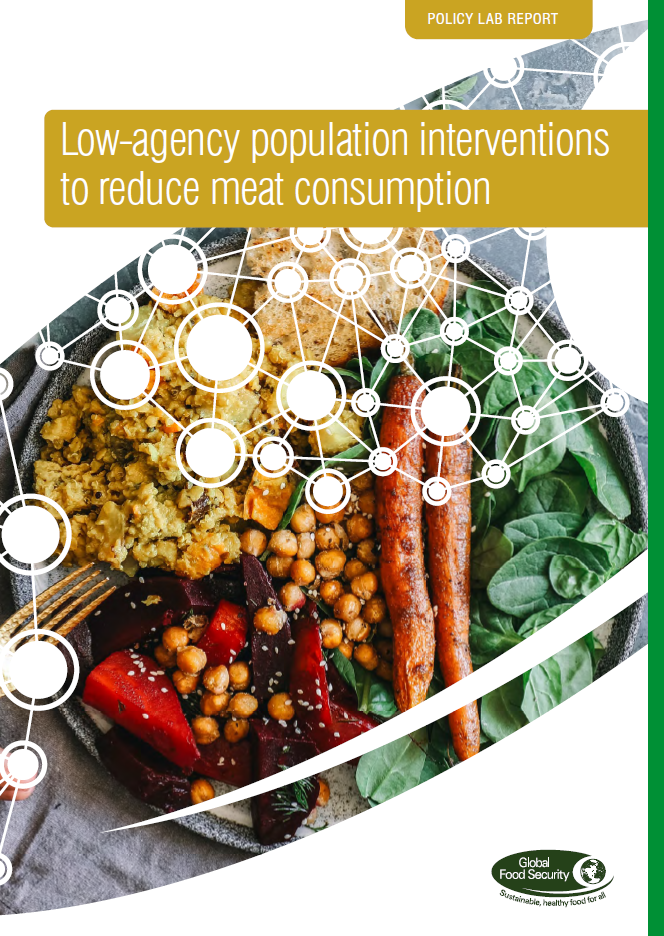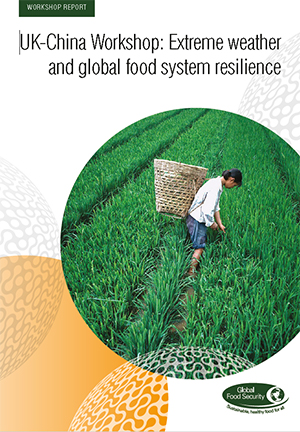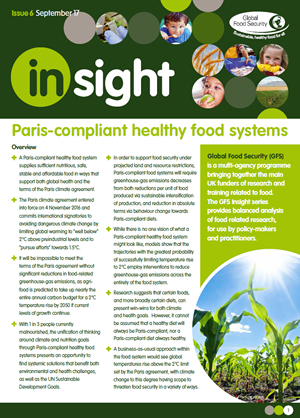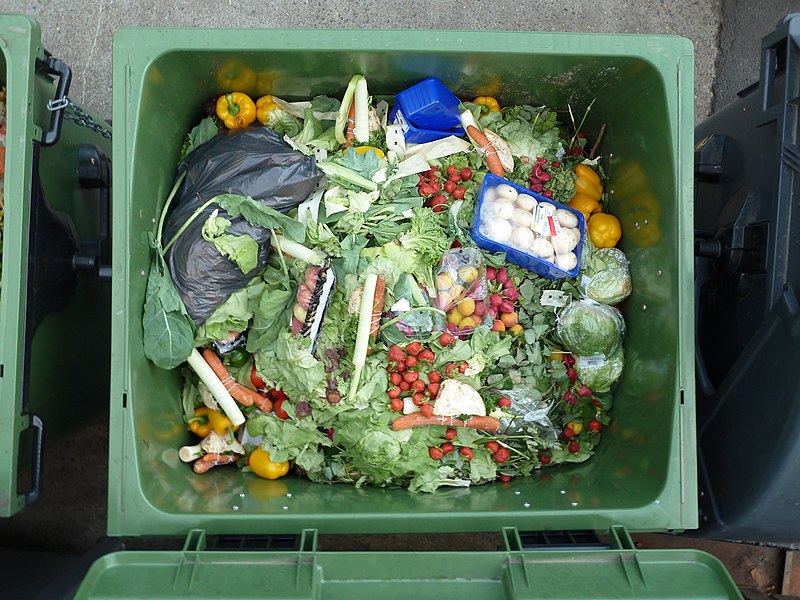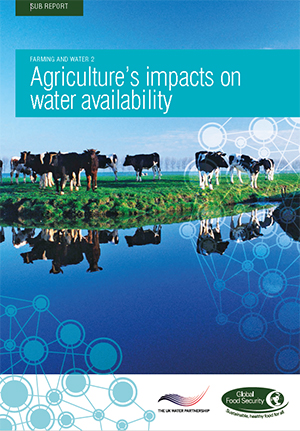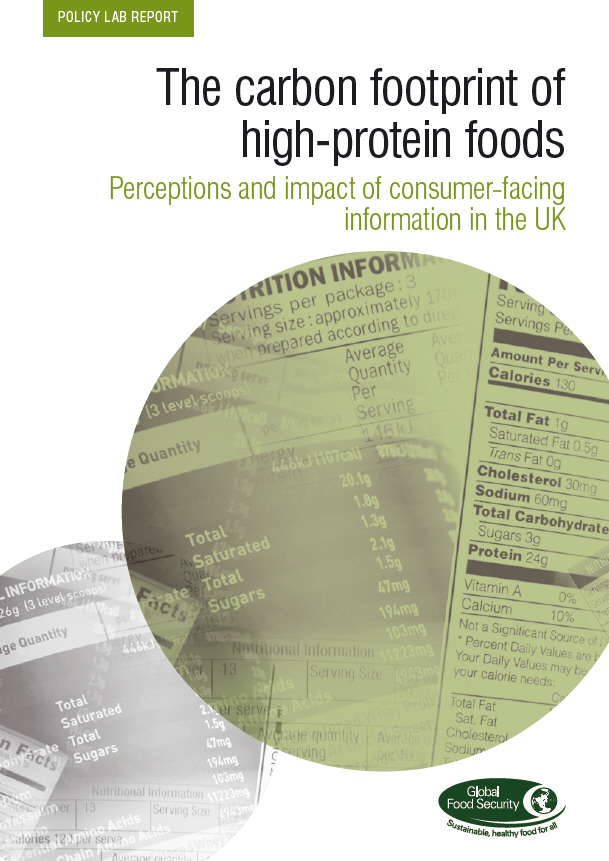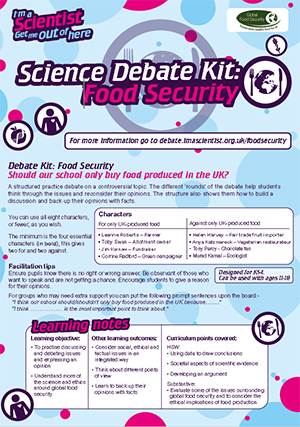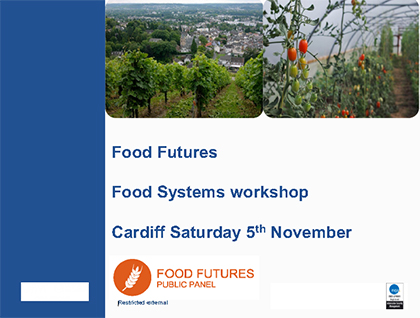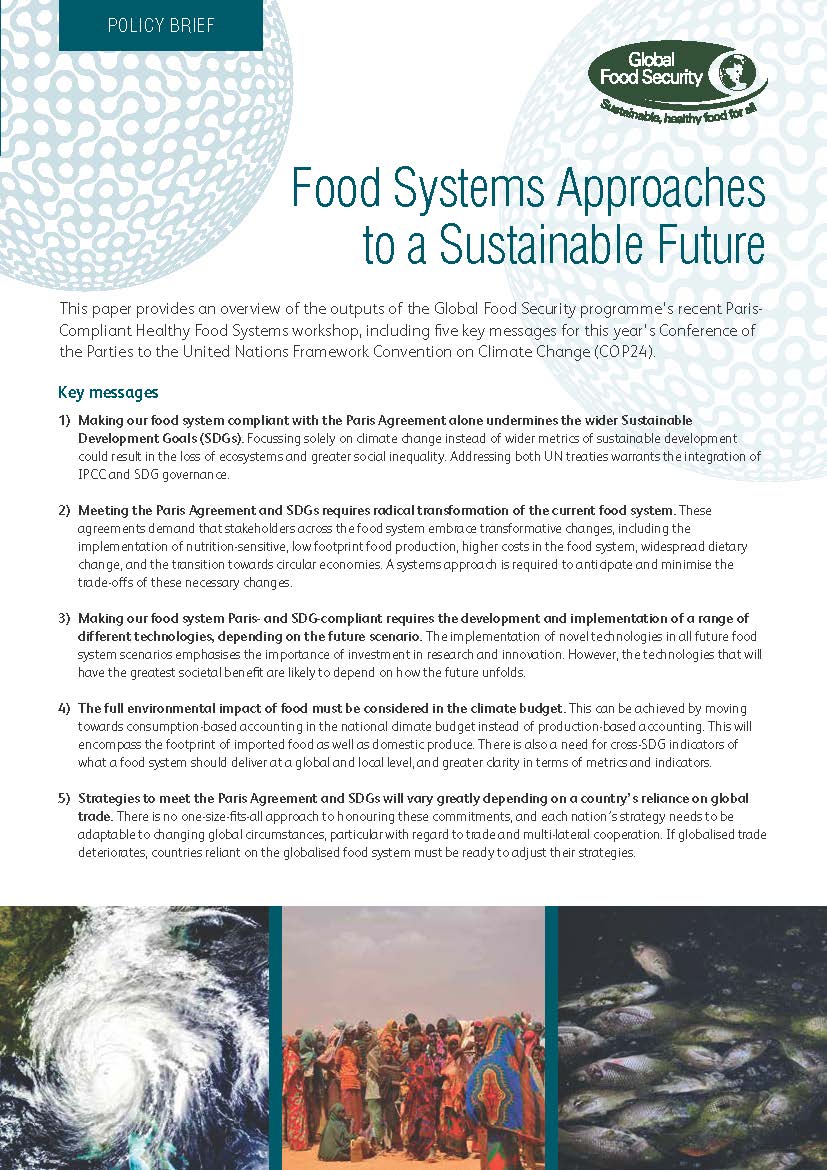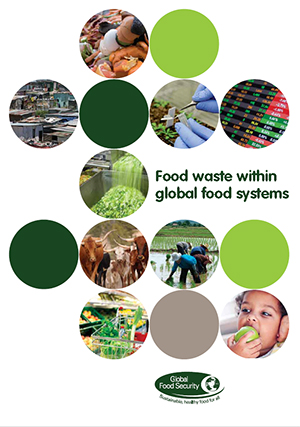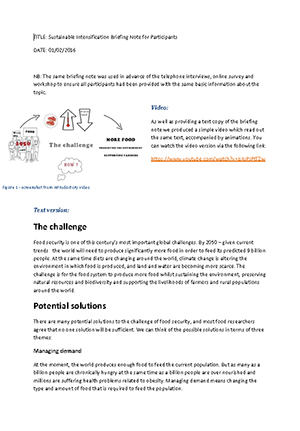
Food Futures Panel: Sustainable intensification briefing note for participants
The GFS programme commissioned a panel of 600 members of the public to take part in engagement activities, exploring different aspects of food security research. This document details stimulus material for the sustainable intensification dialogue.
(You can view PDF documents by downloading a PDF reader. We recommend using Google Chrome or Mozilla Firefox web browsers.)


